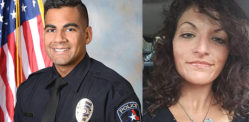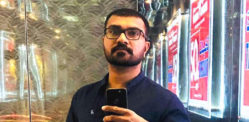"I found it impossible to ignore an animal in need."
Writer and animal welfare advocate Chiku Singh has built her life around compassion in action.
Originally from the UK, Singh is now based in the United Arab Emirates, dedicating her time to rescuing and saving animals who have been neglected and abandoned.
Her commitment goes beyond rescue; it’s a mission rooted in empathy, responsibility and reform.
Singh’s work has been recognised by major outlets, including the BBC.
The Al Falah animal abandonment tragedy in Abu Dhabi, which made international headlines, became a turning point in her journey.
For Singh, it was not just about saving animals; it was about confronting systemic neglect and pushing for lasting change.
Speaking to DESIblitz, her story offers a rare insight into the resilience required to carry out rescue work in one of the world’s harshest climates, and the hope that fuels it.
A Lifelong Calling to Help the Voiceless
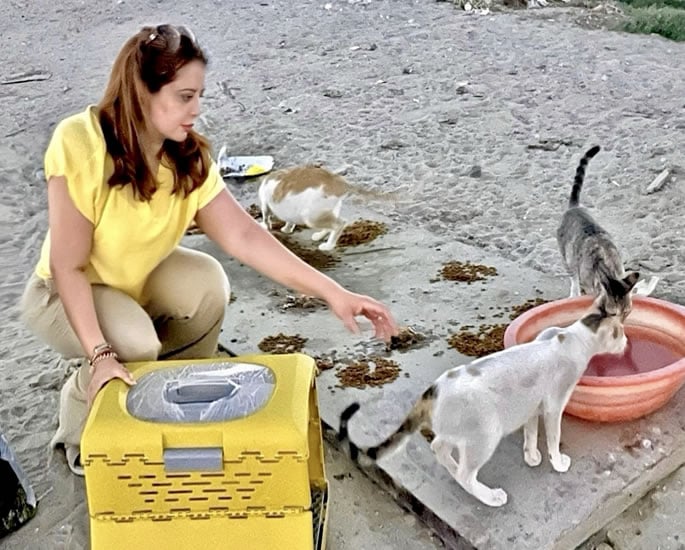
For Chiku Singh, rescuing animals has been a lifelong instinct.
She explains: “From a young age, I found it impossible to ignore an animal in need.
“If I saw a bird with a broken wing or a stray searching for food, I felt I had to act.”
Raised in a family that saw compassion towards animals as a duty, Singh’s moral foundation was built early:
“I also grew up in a family that believed kindness to animals was essential, and that early influence shaped the way I see every abandoned or suffering animal today. That sense of responsibility never left me.”
Singh’s work in animal welfare spanned the UK, India and the Netherlands.
She then moved from the UK to the UAE, but what she witnessed was heartbreaking:
“I remember seeing strays sheltering under parked cars, trying to escape the heat, and struggling to find food or water. It was impossible to walk past without wanting to help.”
Her first major rescue came just weeks later.
Singh says: “Within just two weeks of my arrival, I encountered a serious case of two stray cats near my building who had been poisoned by a resident who did not want animals around.
“Poisoning is a serious offence and illegal here, so I immediately escalated the matter to the police in Abu Dhabi, who came and handled it.”
It was her first true rescue in the country:
“Both cats were very challenging medical cases and although I was new in the country and their treatments cost me heavily, I never once hesitated.
“I went straight ahead with getting them the best care possible. In the end, I adopted them myself.”
That moment set the tone for everything that followed, a commitment that would eventually expand “to cats, dogs, birds, and even camels”.
Bearing Witness to the Al Falah Tragedy
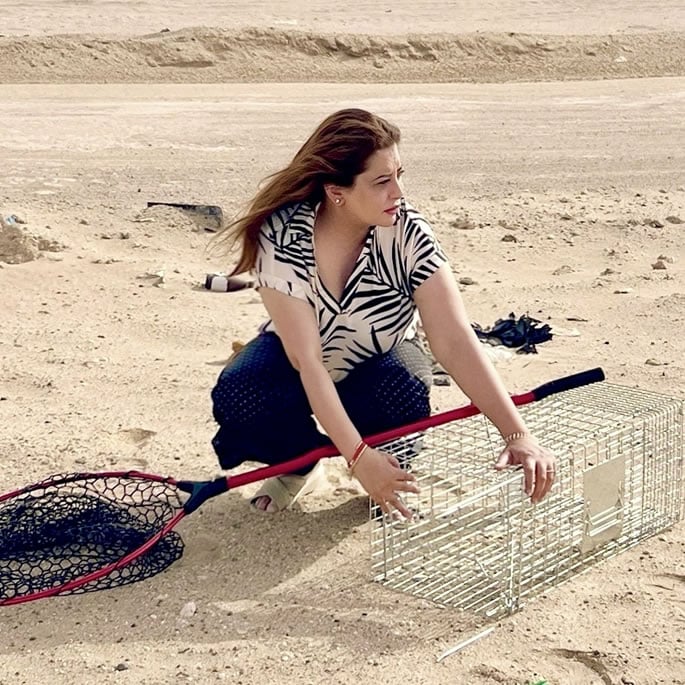
Few incidents have shaken the UAE’s animal welfare community like the Al Falah tragedy.
Chiku Singh was one of the first on the scene, which she described as a “massacre”.
Many cats and dogs were lying dead across the desert, while some animals were found severely dehydrated.
The rescues revealed a disturbing truth.
“These animals had been abandoned in the desert, and when some were scanned, their microchips revealed that they had once been pets.”
For almost six weeks, Singh worked in punishing conditions:
“I spent almost a month and a half in total, carrying half-dead animals into my car, rushing them to vets and fosters, often in fifty-degree desert heat.”
Despite the horror, she recalls the compassion that emerged from the community.
Singh elaborates: “The Emirati neighbourhood around Al Falah was very supportive.
“Residents handed us water and food, and rescuers came from across the Emirates, including Dubai, Ras Al Khaimah, Sharjah and Fujairah in the initial days, though only a handful of us continued until the very end.
“I took time off work, and after a few days, only a very small core group of us remained, doing frontline ground rescue work.
“We went in a single SUV, searching for survivors tirelessly until the very end, finally getting the last cat out after a month and a half.”
This experience changed Singh’s life, who says “the memories will always haunt me”.
She adds: “It was not only a tragedy, it was a turning point. It showed me how urgently systemic change is needed.”
Challenges and Change in the UAE
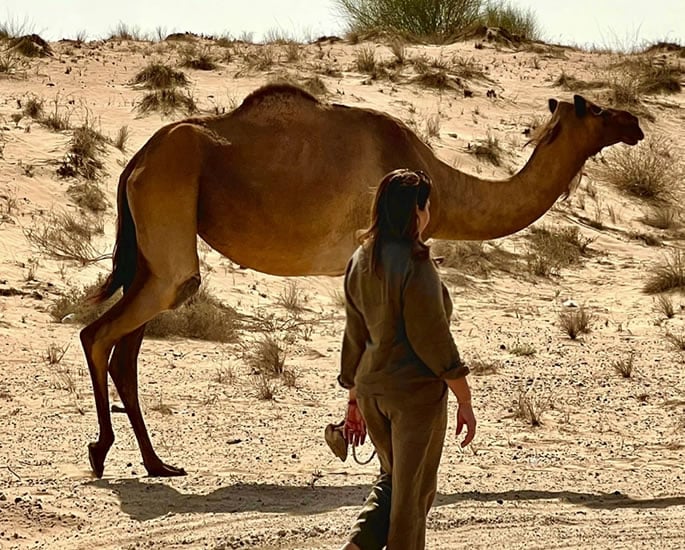
Rescue work in the UAE is not easy, and Chiku Singh has seen the crisis deepen.
She explains: “Pet abandonment is extremely high here. Often, it is expats leaving the country who simply abandon their pets. They drop them off in parks, petrol stations, parking lots, and even residential elevators.
“I once rescued a cat left in a lift, too frightened to move.”
Beyond abandonment, she faces “the scale of suffering, the financial burden of food, medical bills and sterilisation, and the emotional weight of not being able to save every animal”.
But public outrage has begun to move the needle, as Singh elaborates:
“After Al Falah, coverage came not only from CNN and BBC, but also CBS, Khaleej Times, Gulf News, Times of India, Portuguese and Colombian newspapers, PETA, and many more.
“During this time, I was contacted by several global media outlets, and I shared what I had witnessed so the world could understand the scale of the tragedy.”
She believes that global attention drove progress.
Singh also credits local developments for improving the situation:
“Abu Dhabi, being an open-minded emirate, has taken some steps toward improving animal welfare.
“For example, new regulations now require cats and dogs to be microchipped and registered through the TAMM platform, with fines for non-compliance coming into effect next year.
“Change takes time but awareness and education are growing.
“My hope is that more emirates will follow, and that education on animal welfare becomes a national priority.”
Building Systems that Protect
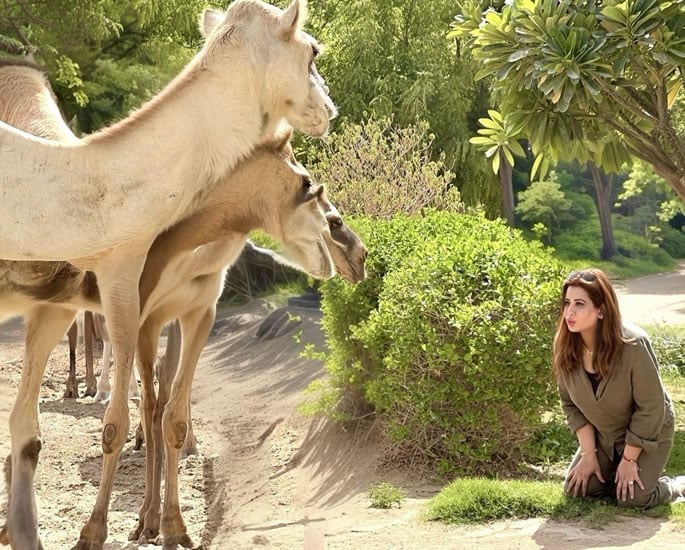
Singh believes the UAE’s laws against cruelty are strong but enforcement must be strengthened.
She says: “Authorities do act swiftly in high-profile cases, but at the grassroots level, we need more practical mechanisms.
“For example, a dedicated police desk staffed with officers who are animal lovers can register cases of abuse and neglect would be invaluable.”
Singh also proposes a reform that could transform accountability:
“Registering pets to owners’ Emirates ID would be a game changer. It would help track responsibility and significantly reduce abandonment.”
Her vision for systemic change is ambitious but realistic:
“The UAE has already shown through its sustainability initiatives and its conservation efforts, such as the breeding and protection of the Arabian Oryx and the creation of nature reserves for flamingos, that it is capable of truly visionary work.”
She wants to see the same approach applied to animal welfare, stating that pet abandonment fines should be “consistently enforced”.
Singh continues:
“Breeders should be regularly audited to ensure they are licensed and compliant, and nationwide TNR campaigns must be scaled up.”
Other improvements are just as vital:
“Third-party contractors who carry out stray animal control can also be guided by clearer processes, including the consistent use of microchip scanners so that pets are properly identified and never mistakenly taken.”
For Singh, education is the foundation, “teaching people from a young age how to respect and care for animals”.
“When combined with stronger systems, these measures could prevent future tragedies and create a safer future for all animals in the UAE.”
Coping, Connection & Global Responsibility

Chiku Singh admits the work takes a heavy toll.
She elaborates: “Many rescuers suffer from compassion fatigue, which is an emotional, physical and mental exhaustion from constantly caring for suffering animals and being exposed to trauma.
“It can burn people out completely, and I have seen some rescuers reach a point where they can no longer carry on.”
But what keeps her going is hope.
Giving one example, Singh says: “Blind kittens I flew to new lives in the UK are now thriving in loving homes, with one even becoming well known on social media.”
She continues: “A severely ill cat whose treatments extending to £10K were only possible thanks to a donor’s generosity is alive today and happily settled in the UK.”
Her compassion also extends to larger animals:
“There have also been camels, found injured or entangled in wires in the desert, and even abandoned ones who are now safe on a farm with a kind Emirati family.”
Still, she believes realism is essential.
“We must be realistic, because we cannot save every animal.
“Some well-meaning people trap too many cats, keeping them in cramped spaces, cages, or bathrooms for months, falling into debt and despair. That is not rescue.”
For Chiku Singh, true rescue “is about dignity, quality of life and balance. Animals are living beings who deserve freedom, not to be hoarded”.
She also calls on global communities to play their part:
“The diaspora can make a big difference. By amplifying stories internationally, they ensure that the struggles here are not forgotten.
“People can spend some time helping the voiceless by supporting local rescuers, joining TNR efforts, or feeding strays.”
Ultimately, Singh sees the issue as interconnected with broader global challenges.
“Beyond rescue, I am also highlighting how the climate crisis and habitat loss affect animals’ survival.
“It is all interconnected; animal welfare cannot be separated from environmental welfare. When people see that link, they also see why change matters globally, not just locally.”
Chiku Singh’s journey reveals how one person’s compassion can ripple into systemic awareness and lasting reform.
From rescuing poisoned strays to driving global conversations on animal welfare, she has become a powerful voice for the voiceless.
Her work shows that advocacy does not end with saving lives; it extends to education, accountability and empathy.
As she continues to connect the dots between animal welfare, environmental sustainability, and diaspora responsibility, Singh’s message is clear: change begins with awareness, and awareness begins with action.























































